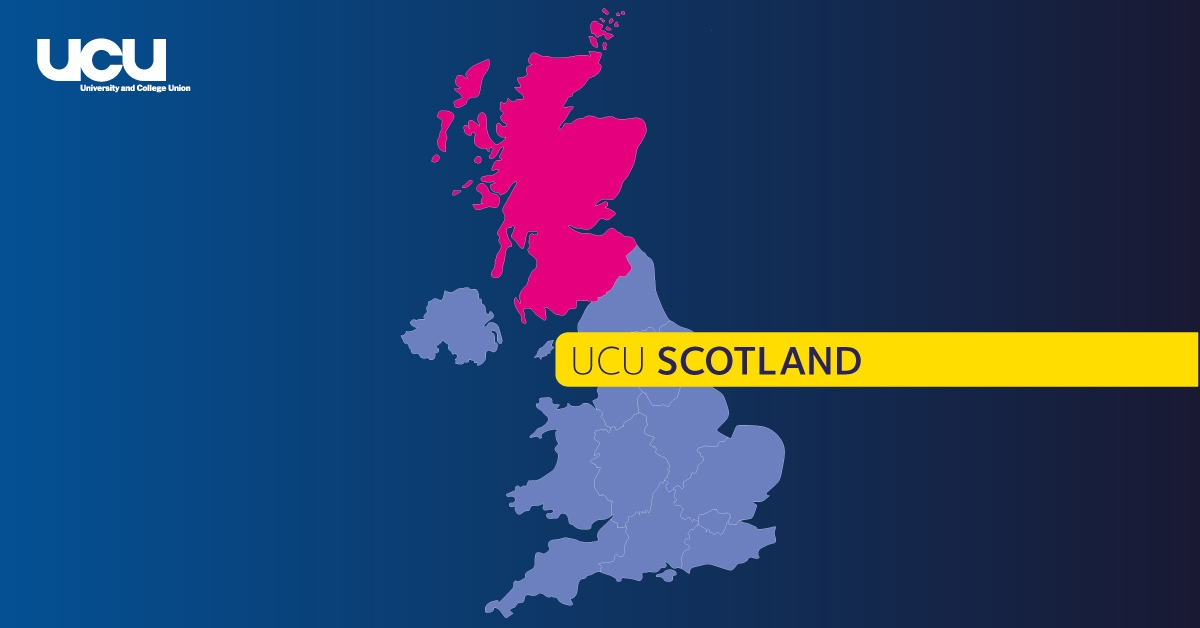Greater vision needed, says UCU Scotland
5 June 2008
UCU Scotland today condemned the decline in the proportion of higher education students from disadvantaged backgrounds in Scotland, and called for greater vision and engagement from the Scottish Funding Council (SFC) to address the issue of broadening access.
Analysis of the Higher Education Statistics Agency's UK Performance Indicators in Higher Education, released today, revealed a small rise in the proportion of young full-time undergraduates in UK higher education from a disadvantaged socio-economic background but the picture for Scotland was in stark contrast as participation from such students has declined. These statistics show that Scotland has the lowest proportion of disadvantaged undergraduates than all the other countries in the UK.
UCU Scotland President, Terry Brotherstone, said: 'Over the past decade, the SFC has spent millions on measures to widen social class participation in higher education. We welcome the priority that has been given to this area. But the SFC's conservative policies and failure to insist that staff are engaged in developing initiatives to develop and implement the policy means that there has been little progress.
'The reversal in the level of participation by 'disadvantaged' students and the higher drop-out rate at universities doing most to attract them is of great concern. And the widening gulf between the priorities of these universities and the research-led institutions is part of the problem.
'The whole idea of a single Scottish higher education system based on the democracy of intellect looks under threat. A two-tier system with, on the one hand, an elite aiming exclusively for prestige in the international research 'market' and on the other, an under-resourced sector focusing on social inclusivity will not serve Scotland's people well in the future.
'Real widening participation is about ensuring students from every background have the opportunity to realise their potential. There needs to be greater effort to encourage school pupils in the early secondary years to think about going to university. Once disadvantaged students actually get to university, more needs to be done to help them complete their studies.
'There needs to be a regeneration of the Scottish educational ideal in which all universities are rooted in their own society as well as having international aspirations. Staff should be involved in policy-making in these areas, not excluded from it as is increasingly the case under the new managerialism, and rewarded for helping implement the inclusivity agenda, not only for their research achievements.'
The figures showed that:
- In 2006-2007, 30.3% of young full-time undergraduates in the UK were from socio-economic groups 4 to 7, compared with 29.8% in the previous year, and 29.2% in 2002-2003 - the base year for these statistics (table T1b).
- Whereas in Scotland the figure for 2006-2007 is 26.6% a significant decline from the previous years figure of 28.1% and that of 29.6% in 2002-2003.
- By contrast, approximately 47% of the UK working age population is from socio-economic groups 4-7.
- 9.7% of UK and 11.7% of Scottish young entrants from low participation neighbourhoods in 2005-2006 were no longer in higher education the following year, compared with only 6.8% of UK and 8.4% of Scottish young entrants from other neighbourhoods (table T3b).
- In all, 14% of full-time students starting first degree courses in 2005-2006 were projected to drop out (table T5).
- PrintPrint this page
- Share




Comments